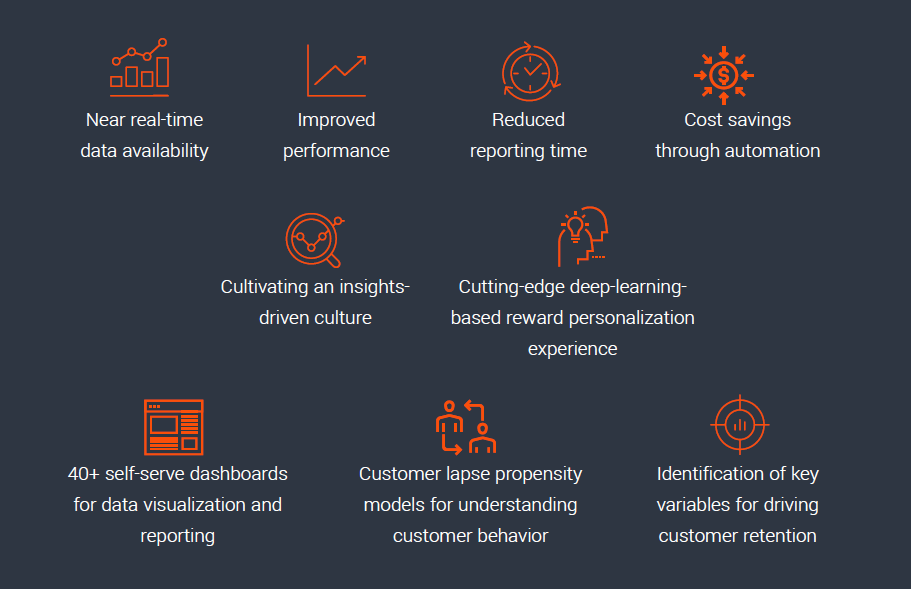Knowledge access: The future of Retail CX
Retailers need quick and easy access to data to better understand their customers, empower employees to make smarter decisions, and deploy innovative solutions like generative AI. However, many organisations struggle with making their data accessible due to siloed knowledge management systems, which limit collaboration and productivity, hindering the seamless flow of knowledge across departments and impeding collaboration. Additionally, the sheer volume and complexity of available data can make it difficult for individuals to find the relevant information needed to make informed choices.
To address these challenges, retail organisations need solutions that enhance knowledge access and collaboration, leveraging technology to streamline information retrieval and foster a culture of knowledge sharing.
Leveraging technology for improved knowledge access and collaboration
Knowledge sharing platforms and collaboration tools
Deploying knowledge sharing platforms and collaboration tools can alleviate the challenges of information overload and complexity. A 2021 survey by Gartner found that nearly 80% of employees were using knowledge sharing and collaboration tools for work in 2021, up from just over half of workers in 2019, according.
Using these tools, retailers can improve information discovery and facilitate sharing information, foster a culture of collaboration, and enable data-driven decisions. Available, accessible data is required for adopting advanced generative AI solutions. Deploying these tools builds the foundation for these AI programs.
Integrated and interoperable solutions
Any tools leveraged by an organisation will have limited usefulness unless they’re integrated and interoperable.
Integration combines multiple applications to function as a unified whole. Interoperability incorporates content from multiple disparate and independent systems. Both approaches help break down silos and create a unified knowledge management ecosystem.
Real-time support, automated responses, and intelligent recommendations enhance colleagues’ ability to provide excellent customer service, boosting customer satisfaction and loyalty.
Empowering users and enhancing experiences
Optimising user interfaces and enabling intelligent search systems
By optimising user interfaces, enhancing search functionalities, and integrating various systems, retail organisations can streamline customer journeys and improve employee effectiveness.
For example, augmenting information retrieval systems, such as those used by employees to look up data or by customers to search for products on a retailer’s website, with AI-enabled intelligent search recommendations can provide personalised product recommendations and using machine learning algorithms. These systems can help retail organisations to identify upsell and cross-sell opportunities and improve shopper experiences.
Improving customer experience and knowledge accessibility
Augmenting employee expertise with AI
Retail organisations can leverage generative AI technologies to augment employee expertise. Real-time support, automated responses, and intelligent recommendations enhance colleagues’ ability to provide excellent customer service, boosting customer satisfaction and loyalty. A study conducted by Deloitte discovered that when artificial intelligence is combined with the knowledge and skills of human colleagues, it has enabled employees to spend more time on higher-value activities. This is achieved by automating their regular tasks, resulting in time savings ranging from 24% to 44%.
This can be seen when organisations leverage self-service knowledge bases and chatbots powered by generative AI. These solutions can provide customers with a convenient way to find information independently. By empowering customers to resolve their queries and access information quickly, retail organisations can improve customer satisfaction and reduce the burden on support teams.
Case Study: Implementing a centralised knowledge management solution for a leading global e-commerce company
A leading global e-commerce and marketplace company faced challenges in accessing and utilizing its vast amount of data, hindering effective decision-making. The client needed a self-service insights and reporting ecosystem to empower its teams.
In collaboration with the client, EXL implemented a comprehensive data infrastructure for the payments and delivery processes. This involved designing and building over 30 data marts that could be utilized across verticals. Additionally, EXL reverse-engineered existing jobs to understand the legacy logics used to derive metrics in flashes and reports.
To enhance knowledge access, EXL developed more than 40 self-serve dashboards, customized based on data visualization and reporting requirements. These dashboards empowered teams, including product managers and business heads, to identify and track key metrics and growth levers.
Furthermore, machine learning models were created. These included customer lapse propensity models that helped users understand customer behavior based on past data. These models identified important variables that drive customer retention on a monthly basis.
The partnership between EXL and the company yielded significant outcomes, including:

Best practices for knowledge access and collaboration
Developing a knowledge-centric culture
To enhance knowledge access and collaboration, retail organisations should foster a knowledge-centric culture. This involves creating an environment where knowledge sharing is encouraged and valued.
This can be accomplished by establishing clear communication channels by providing platforms for employees to share their knowledge and ideas openly. This can be achieved through intranet portals, collaboration tools, and regular team meetings.
Recognising and rewarding knowledge sharing is critical as well. Acknowledging and rewarding employees who actively contribute to knowledge sharing initiatives can motivate others to participate. This can include recognition programs, incentives, or performance metrics that measure knowledge sharing efforts.
Encouraging cross-functional collaboration by breaking down silos and promoting collaboration across departments can also be accomplished through cross-functional projects, interdepartmental training, and knowledge sharing sessio
Promoting continuous learning
To improve knowledge access and collaboration, retail organisations should prioritise continuous learning and knowledge sharing.
Implementing a formalised learning and development program that equips employees with the skills and knowledge required for effective knowledge management and collaboration is a must. This can include creating workshops, webinars, online courses, and mentoring programs.
Creating communities of practice also enables employees with similar interests or areas of expertise to connect, share knowledge, and collaborate. These communities can be formed through online platforms, regular meetings, or forums where employees can exchange ideas and best practices.
Documentation and knowledge capture best practices should be instituted. This can be achieved through knowledge repositories, wikis, or internal documentation systems. Encouraging employees to contribute to these repositories ensures that valuable knowledge is captured and accessible to others.
Measuring and monitoring success
To ensure the effectiveness of knowledge access and collaboration initiatives, retail organisations should measure and monitor their success.
This begins with establishing key performance indicators that align with knowledge access and collaboration goals. These can include metrics such as the number of knowledge contributions, user satisfaction with knowledge sharing platforms, or the time taken to find and access relevant information.
Conducting regular assessments and surveys can provide insights into the effectiveness of knowledge access and collaboration practices. Employee feedback on the usability of knowledge management systems, perceived knowledge sharing culture, and satisfaction with collaboration tools can guide improvements.
Retail organisations can track usage patterns and engagement levels with knowledge sharing platforms and collaboration tools. This data can help identify areas of improvement, popular knowledge topics, and areas where additional support or training may be needed.
By implementing these best practices, retail organisations can create a culture that values knowledge sharing, encourages continuous learning, and fosters collaboration. Measuring and monitoring the success of these initiatives ensures ongoing improvement and optimisation of knowledge access and collaboration efforts.
Employee feedback on the usability of knowledge management systems, perceived knowledge sharing culture, and satisfaction with collaboration tools can guide improvements.
Conclusion
By implementing knowledge sharing platforms, intelligent search systems, and integration solutions, retail organisations can enhance knowledge access and collaboration, as well as prepare for implementing advanced solutions such as generative AI. Additionally, empowering colleagues with streamlined operating systems, personalised support, and training programs will maximise their ability to utilise information effectively.
Ultimately, a customer-centric approach that leverages AI, self-service options, and continuous improvement will deliver an exceptional customer and employee experience. By adopting these strategies, retail organisations can optimise knowledge management, drive productivity, and gain a competitive edge in today’s information-rich world.
Written by:
Alok Dalvi
Senior Assistant Vice President,
Products and Solutions
Nazima Chauhan
Vice President, Business Development,
EXL Service (UK & Europe)
1 Gartner Survey Reveals a 44% Rise in Workers’ Use of Collaboration Tools Since 2019
2 AI adoption in the workforce | Deloitte Insights
